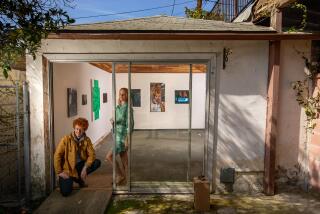Essential Arts & Culture: Björk-apalooza, a master of theater, architecting L.A.’s newest museum
- Share via
We’ve got Björk. We’ve got the legendary theater director Peter Brook. We have a 24-hour party for Lou Harrison and the architect behind the Marciano Art Foundation. I’m Carolina A. Miranda, staff writer for the Los Angeles Times, and this week’s art and culture newsletter has more offerings than the all-you-can-eat at Sizzler:
Björk in pixels
“Björk-apalooza” is about to hit L.A., and The Times’ Jessica Gelt is on it. The famed Icelandic musician is staging a virtual reality exhibition titled “Björk Digital,” she is presenting her new book “34 Scores for Piano, Organ, Harpischord and Celeste,” and she has a sold-out show with the Los Angeles Philharmonic at Walt Disney Concert Hall. “I’m trying to be truthful to the lives we lead now,” the artist says of the digital project. “We are on our phones now — sharing files and ideas, making videos, photos and songs.” Los Angeles Times
Interview with history
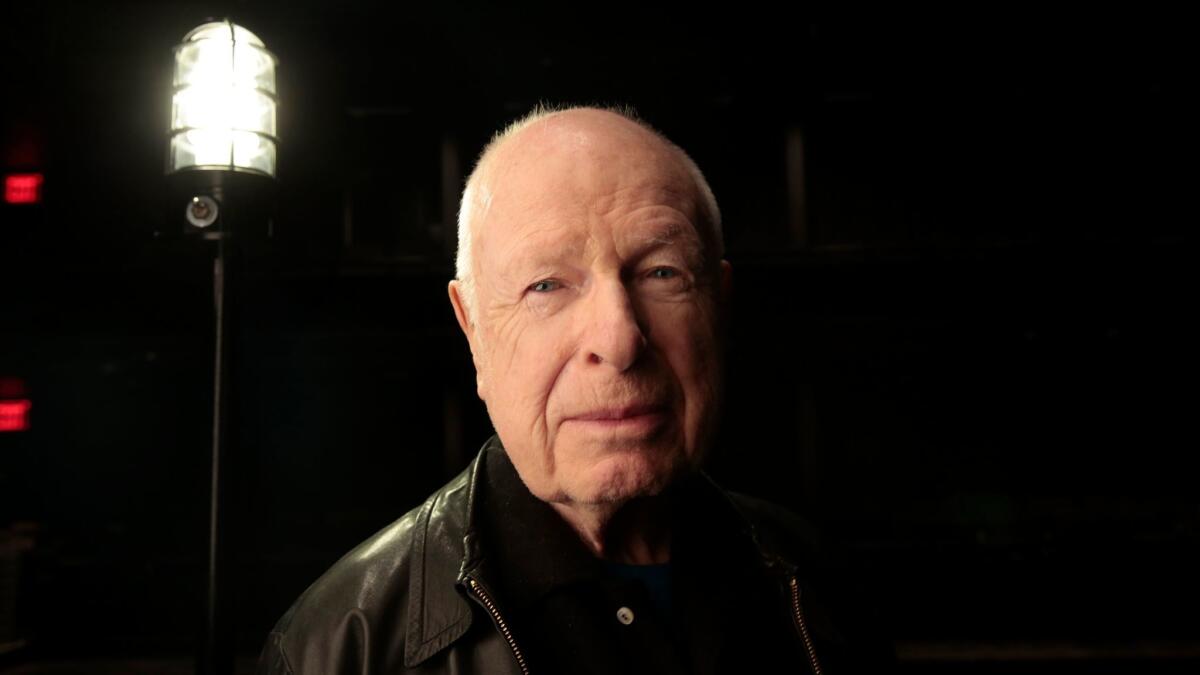
Times theater critic Charles McNulty had an epic sit-down with British theater director Peter Brook, who is about to open his latest production at the Wallis Annenberg Center for the Performing Arts. McNulty looks at this master’s long history (he is 92) of working with gifted actors (Laurence Olivier, Alec Guinness) and staging groundbreaking productions (“Marat/Sade” and his nine-hour “The Mahabharata”). The new work “Battlefield” is a 70-minute distillation of “Mahbharata” that explores society’s slide into a dark and chaotic phase. “We are,” Brook tells McNulty, “in the very last part of a sliding slope going downwards.” Los Angeles Times
And because McNulty is on a tear, he also has pieces on Guillermo Calderón’s new drama, “Kiss,” Amy Freed’s “The Monster Builder” and Wallace Shawn’s “The Designated Mourner.” Whew!
A bold openness
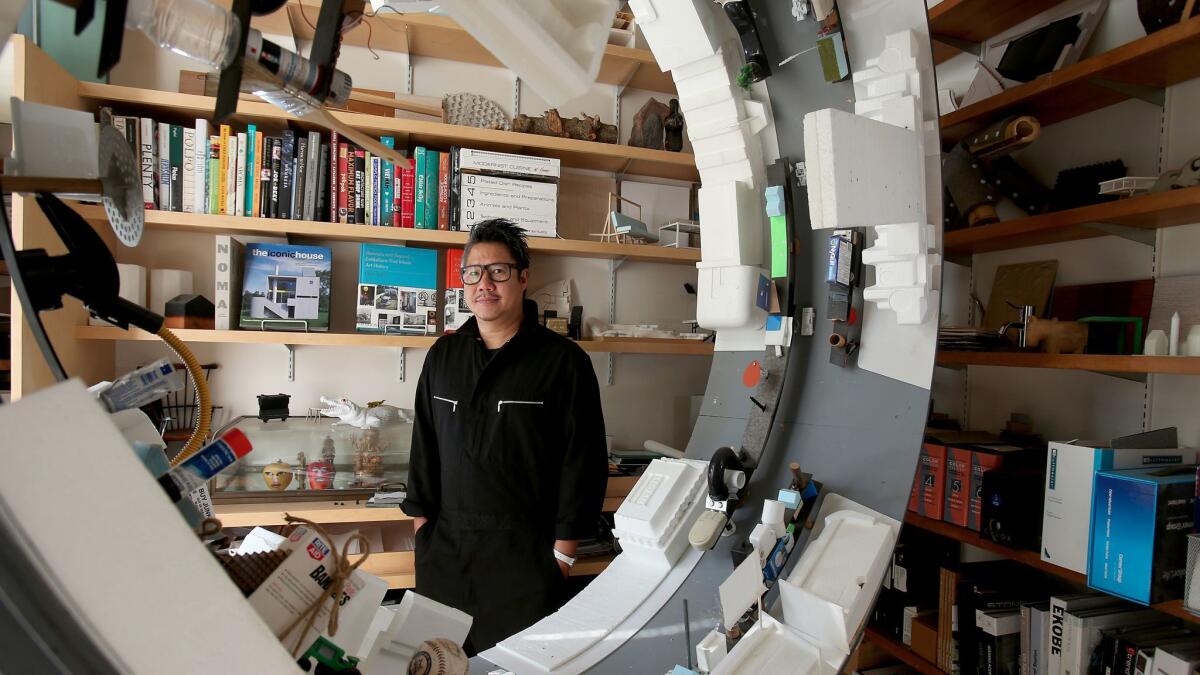
L.A. is unveiling a new museum next week: the Marciano Art Foundation, which has taken up residence inside the old Scottish Rite Masonic Temple on Wilshire Blvd. I profile architect Kulapat Yantrasast, a protegé of Pritzker Prize-winner Tadao Ando and founder of the Culver City firm Why, about his work redesigning this unusual space. “I like it because it feels alive,” says Yantrastast of the unusual building. “It’s not a white box. It has these eccentric details.” Los Angeles Times
Plus, Jori Finkel reports on the L.A. art spaces that are opening in vintage settings — including the Marciano Art Foundation and the Main Museum. New York Times
Taking measure of the Expo Line

Times architecture critic Christopher Hawthorne looks at the zoning and urbanism issues surrounding the Expo Line — and it ain’t pretty. “Should we focus on the fact that new zoning plans for the Expo corridor in Los Angeles and Santa Monica have yet to be implemented?” he asks. “Or that the plans, as written, are so watered down by worries about density and new development as to be effectively meaningless in attacking our acute housing shortage?” Maintain that unworkable status quo, El Lay! Los Angeles Times
Plus, Hawthorne also reports on plans by the Berggruen Institute, the public policy think tank established by Nicolas Berggruen, to construct a campus in the Santa Monica Mountains designed by Herzog & de Meuron, as well as its takeover of a 1924 building in MacArthur Park, which Spanish firm SelgasCano will renovate. Los Angeles Times
Celebrating Lou Harrison
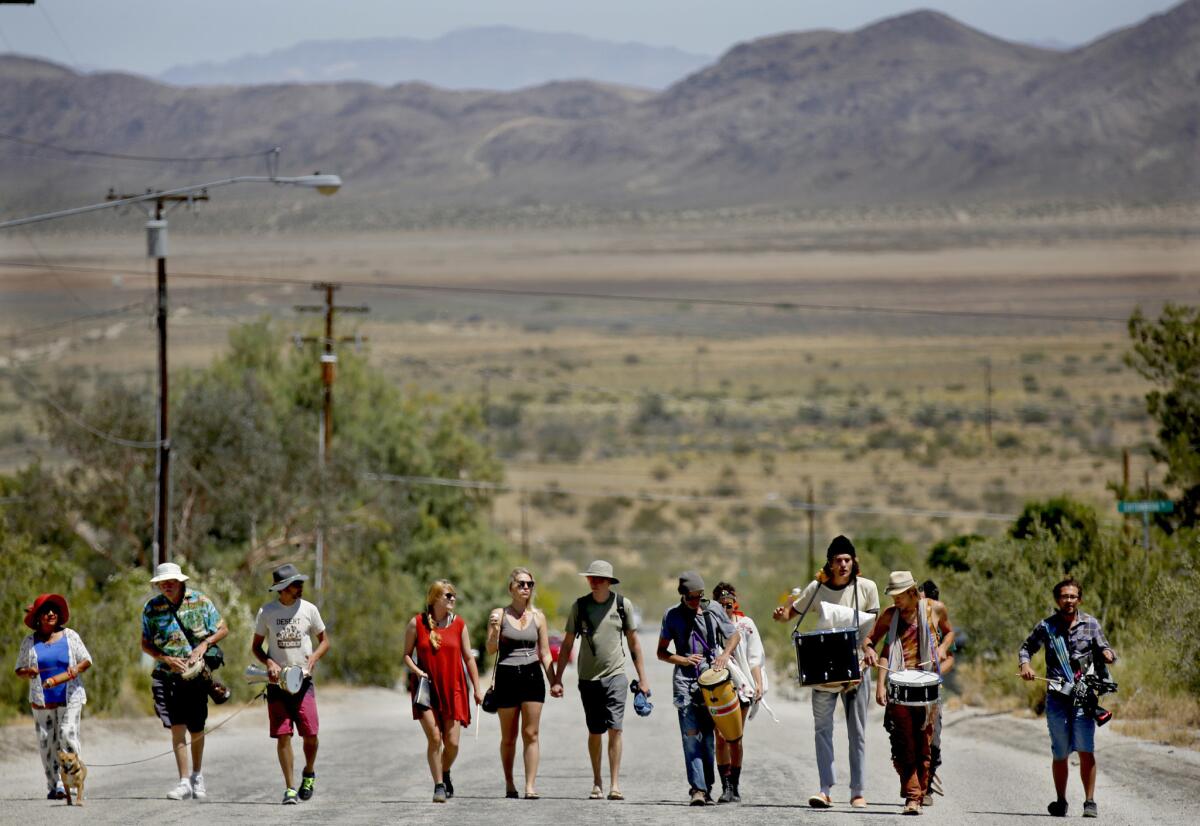
In the meantime, Times classical music critic Mark Swed attended a 24-hour celebration in Joshua Tree to mark the 100th anniversary of composer Lou Harrison’s birth. He was often treated as an outsider artist for his protean interests, which included Indonesian gamelans, Esperanto and microtones. It was an event that included star-gazing, tree plantings and some “gorgeous” performances of Harrison’s work. Los Angeles Times
Plus, Swed took in a production of the Long Beach Opera’s “As One,” a coming-of-age tale by Laura Kaminsky that is also a transgender story. “As One,” he writes, “is not so much an opera of ripped-out-of-the-headlines relevance than a traditional, if unconventional, love story.” Los Angeles Times
A look at Latino representation
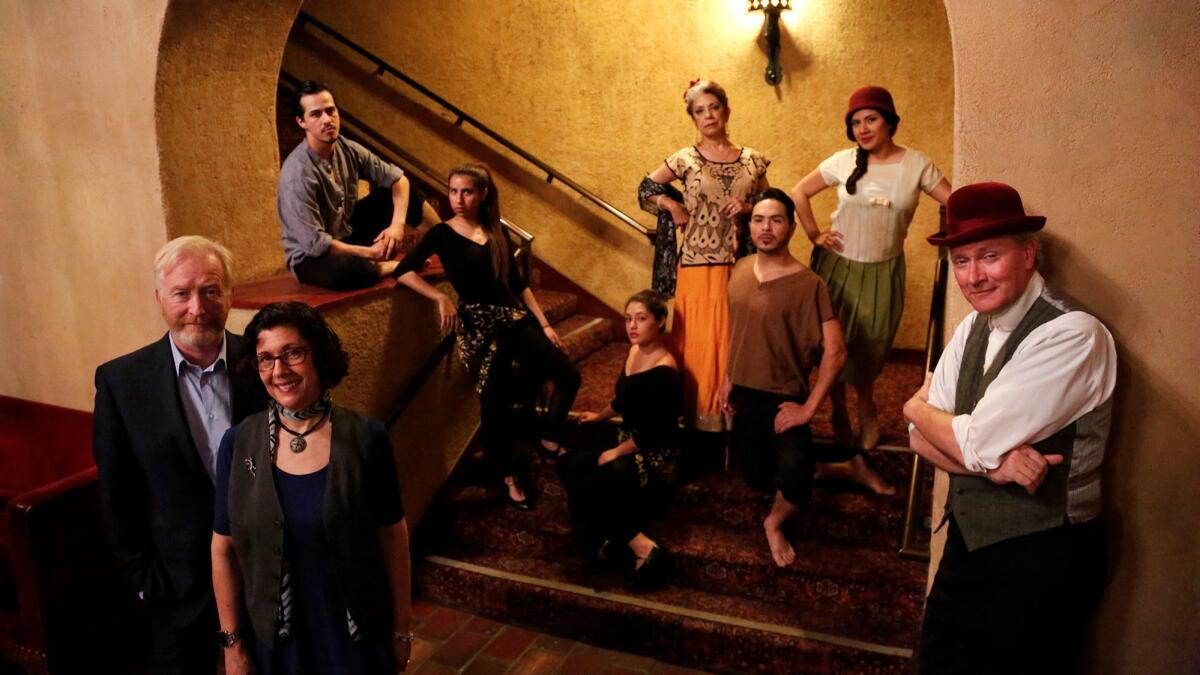
The San Gabriel Mission Playhouse is staging a monthlong series of events that look at issues of Latino representation in Hollywood, with screenings of a documentary about the Latino image and the 1927 Douglas Fairbanks film “The Gaucho.” The programming will include a staging of “They Shoot Mexicans, Don’t They,” by Theresa Chavez and Rose Portillo. The Times’ Vera Castaneda reports. Los Angeles Times
Protest in light
Artist Robin Bell made headlines earlier this week when he projected phrases onto the Trump International Hotel in Washington, D.C. — including a sign that read “Pay Trump Bribes Here.” I spoke with Bell about his protest work: “We’re not going to slow down any time soon.” Los Angeles Times
Note to self
Sci-fi writer Octavia Butler used to write notes to herself to quell her doubt. These are now on view at the Huntington Library in San Marino — along with manuscripts, photographs and notebooks. Los Angeles Times
A modest proposal
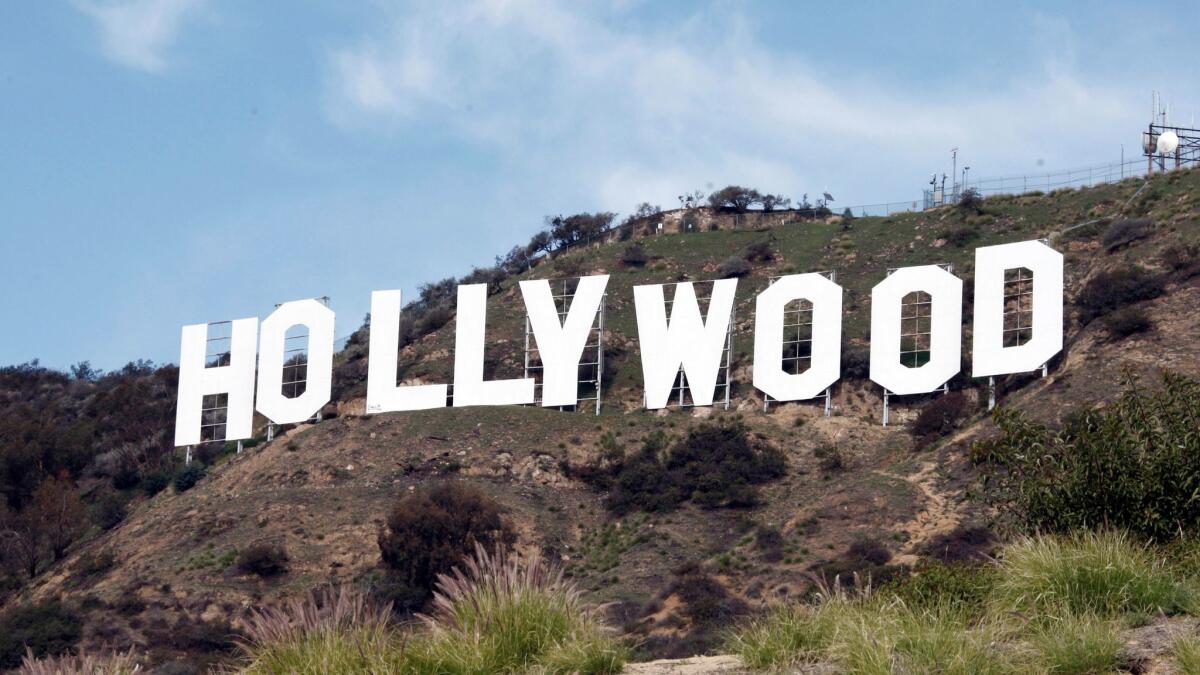
Pedestrian access to the area around the Hollywood sign has been an ongoing struggle between the public and a few dozen private home owners in the Hollywood Hills. In this must-read historical report (and spectacular attack on NIMBYism), Adrian Glick Kudler argues that perhaps the best thing L.A. can do is not get rid of the sign, but instead dispose of the wealthy community nearby, making the area truly open to everyone. After all, it’s what the city did with Chavez Ravine and Bunker Hill. Make a sandwich, pack the pipe and apply the tanning lotion. This is is one helluva long read. Curbed
In other news…

— The Edward Albee estate has denied the rights for “Who’s Afraid of Virginia Woolf?” to Oregon theater director Michael Streeter over casting issues, including the casting of an African American man in the lead. The Guardian
— Online, a roiling debate about the state of music education: to teach, or not to teach, music theory. The Conversation
— Sarah Kirkland Snider on being a woman composer in a male-dominated field. New Music Box
— The highlights and controversies of the Documenta exhibition in Athens. The Guardian
— Plus, both the curators of Documenta and the Venice Biennale have put their romantic partners in their respective shows. Cue the chin-scratching emoji. Artnet
— Felipe Ehrenberg, the Mexican conceptual artist known for his socio-political work and as co-founder of Beau Geste Press, has passed away. Note to L.A. curators: Would love to see a show of his work here. Artforum
— Filmmaker Alejandro Iñárritu has unveiled a harrowing virtual reality film at Cannes about crossing the border. It will land at LACMA on July 2. New York Times
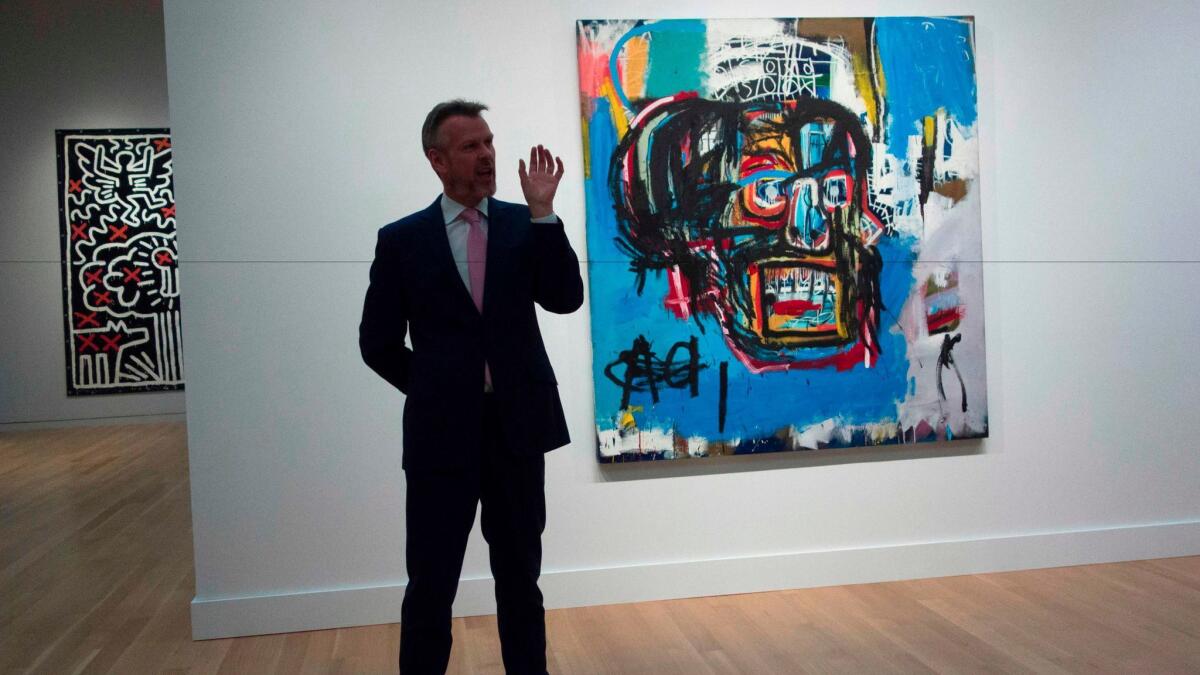
— Annals of the 1%: A Basquiat sold for $110.5 million at Sotheby’s this week. New York Times
— A profile (with repeated use of the phrase “lifestyle brand”) of choreographer Bejamin Millepied and his contemporary ballet troupe L.A. Dance Project, which recently signed a lease for new headquarters in the Arts District. Dance Magazine
— Five artists — including L.A.’s Kerry Tribe — are recipients of the 2017 Herb Alpert Award in the Arts. Los Angeles Times
— The Ford Theatres complex is ready to inaugurate its newly renovated amphitheater with its 2017 summer line-up, which includes collaborations with New York’s Lincoln Center Festival and the Apollo Theater. Los Angeles Times
— Susana Bautista has been named executive director of the Pasadena Museum of California Art. Artforum
— It’s the 100th anniversary of the birth of seminal Mexican novelist Juan Rulfo. David Marcial Pérez revists the landscapes of his life and novels. El País (in Spanish)
— Incidentally, Rulfo was an accomplished photographer. Bomb Magazine
And last but not least…
Portraits of Trump made with food. Eater
Sign up for our weekly Essential Arts & Culture newsletter »
ALSO
Aliens, abstraction and Thomas Kinkade: An L.A. exhibition summons the spiritual and the fantastical
More to Read
The biggest entertainment stories
Get our big stories about Hollywood, film, television, music, arts, culture and more right in your inbox as soon as they publish.
You may occasionally receive promotional content from the Los Angeles Times.
